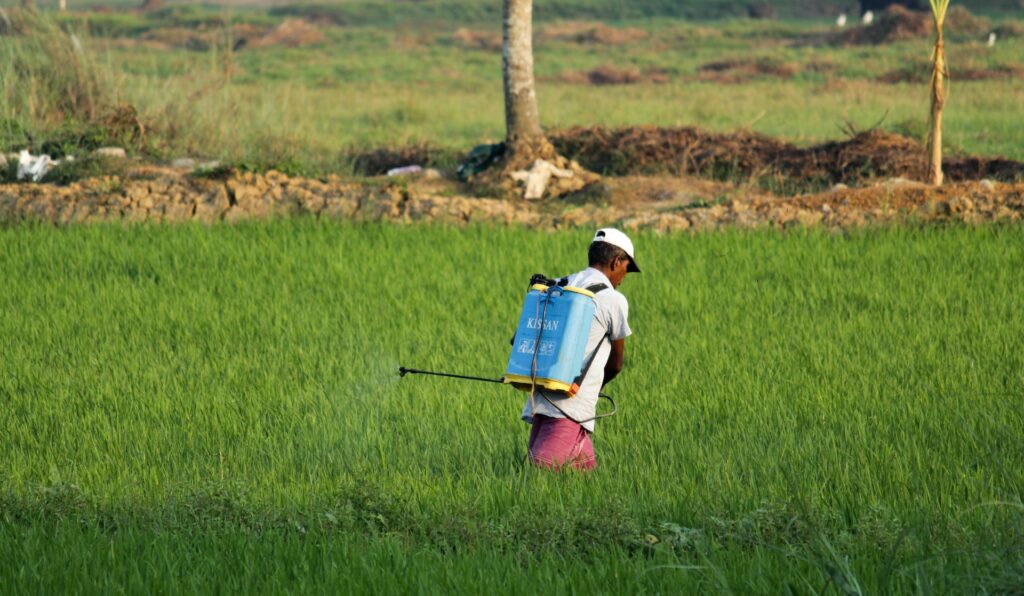Cornell University researchers have recently discovered that cannabinoids in cannabis, like CBDA and CBGA, have natural defensive properties that have the potential to serve as a basis for pest control in agriculture. The study highlights the need for further research to develop THC-compliant cannabis cultivars and to overcome regulatory challenges for their use as natural pesticides.
Cannabinoids Could Serve as Basis for Natural Pesticides


In a recent study conducted at Cornell University, researchers have uncovered a potential agricultural breakthrough: cannabinoids found in cannabis could serve as a basis for natural pesticides.
The study, led by Larry Smart, a plant breeder and professor at the School of Integrative Plant Science of the College of Agriculture and Life Sciences at Cornell AgriTech, highlights the defensive properties of cannabinoids against herbivores, thus opening new possibilities for sustainable pesticides in agriculture.
For more news like this, along with all the latest in legalization, research, and lifestyle, download our free cannabis news app.
The Defensive Role of Cannabinoids
For decades, cannabinoids, including CBD and THC, have been primarily studied for their medical and psychoactive effects. Recent research at Cornell suggests that these compounds could play a crucial role as “defensive compounds” in plants, protecting them from ultraviolet rays, pathogens, and herbivores.
Larry Smart notes, “It was assumed that these were defensive compounds because they mainly accumulate in female flowers to protect the seeds, which is a fairly common concept in plants.”
Cornell’s cannabis breeding program, launched in 2017, provided a platform for this revolutionary discovery. Different cannabis cultivars were evaluated for their susceptibility to pests, with cannabinoid-free varieties suffering significant damage caused by insects. In contrast, varieties containing cannabinoids, such as CBDA and CBGA, experienced much less damage from pests like the Japanese beetle, suggesting a chemical composition that created natural pesticides.
Experimental Cannabinoid-Based Pesticides
Controlled feeding studies in the laboratory isolated CBDA and CBGA, the precursor compounds of CBD and CBG, respectively. Researchers observed that as cannabinoid concentration increased, insect larvae showed reduced growth and lower survival rates.
George Stack, a postdoctoral researcher involved in the study, emphasizes the significance of these findings: “The study gives us insight into how cannabinoids function in natural systems and can help us develop new THC-compliant cannabis cultivars that maintain these natural defenses against herbivores.”
While the potential use of cannabinoids as pesticides is exciting, challenges remain. The study underscores the need for continued research to identify specific pests against which cannabinoids are effective. Regulatory barriers, stemming from the pharmacological effects of these compounds, also pose obstacles to their widespread adoption in agriculture.
Future research will aim to explore the impact of cannabinoid-based pesticides on sap-sucking insects, such as aphids, and to assess whether other plant species that produce cannabinoids share similar insecticidal properties. Researchers are particularly intrigued by the concept of convergent evolution, where the same adaptation appears independently in different species.
—
(Featured image by Arjun MJ via Unsplash)
DISCLAIMER: This article was written by a third-party contributor and does not reflect the opinion of Hemp.im, its management, staff, or its associates. Please review our disclaimer for more information.
This article may include forward-looking statements. These forward-looking statements generally are identified by the words “believe,” “project,” “estimate,” “become,” “plan,” “will,” and similar expressions. These forward-looking statements involve known and unknown risks as well as uncertainties, including those discussed in the following cautionary statements and elsewhere in this article and on this site. Although the company may believe that its expectations are based on reasonable assumptions, the actual results that the company may achieve may differ materially from any forward-looking statements, which reflect the opinions of the management of the company only as of the date hereof. Additionally, please make sure to read these important disclosures.
First published in Newsweed, a third-party contributor translated and adapted the article from the original. In case of discrepancy, the original will prevail.
Although we made reasonable efforts to provide accurate translations, some parts may be incorrect. Hemp.im assumes no responsibility for errors, omissions or ambiguities in the translations provided on this website. Any person or entity relying on translated content does so at their own risk. Hemp.im is not responsible for losses caused by such reliance on the accuracy or reliability of translated information. If you wish to report an error or inaccuracy in the translation, we encourage you to contact us.



Comments are closed for this post.